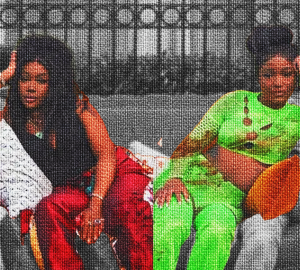The fashion industry is all fun and games until we realize that fashion magazine’s futures could be uncertain.

Fashion’s future options are always mentioned, often focusing on various topics like sustainability, wearable tech or resale, but what’s never mentioned is if fashion magazines will take a different approach.
Vogue, Elle and InStyle are some of the many fashion magazines that are still available in print today. You see them in bookstores and grocery stores, but do people still buy them? I’ve never seen someone at the grocery store checkout line with a copy in their hands, except for the ones in mine.
Every month, I religiously get a copy of my favorite fashion magazine because I wish to stay updated with the basics of the industry. Can it be that other people are getting updated just by logging in on social media?
Social media posts about fashion industry news include a caption with two or three small paragraphs of information. These give you the highlights for a quick briefing, and most readers feel informed with by them.
But fashion magazines contain longer and more emotional articles which fills you up with details, emotions and insights. What will the magazine industry do to maintain the curiosity of fashion magazines?
At the beginning of this month, Italian Vogue launched a “photo-free” sustainability issue that featured illustrated stories. Italian Vogue didn’t leave traces of pollution because they omitted the traveling and shipping of clothes for photoshoots.
Changing its ways, but still keeping the element of what makes a magazine, might be the way to keep consumers buying magazines. By analyzing this as a case, it shows that Italian Vogue might have decoded a problem that the magazine industry has never thought about.
Consumers are starting to be one step ahead in concluding things the industry hasn’t thought about yet. If fashion magazines enter the sustainability conversation, will readers reconsider?

























